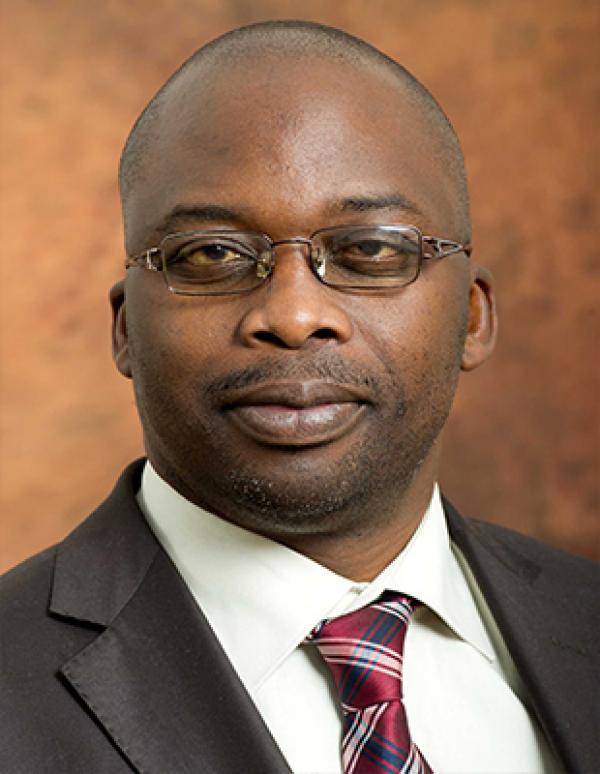The Difficulty with De Kock

On 10 July 2014 the Minister of Justice, Michael Masutha, conveyed his decision to refuse Eugene de Kock’s application for parole to the public. His decision, although unsurprising, is unusual for having gone against the respective recommendations of the National Council for Correctional Services and the Correctional Supervision and Parole Board, who, in November 2013, recommended that de Dock be released on parole.
Parole determinations are notoriously covert processes. Presumably, however, the CSPB would have considered the submissions or reports of correctional officials who were privy to de Kock’s conduct and activities during his imprisonment, De Kock’s own submissions, and come up with a suitable recommendation. If rumour is to be believed, De Kock has, on all acounts, been a “model prisoner”.
The Minister justified his decision on the grounds that certain relatives of De Kock’s victims has not been given the opportunity to make submissions to the CSPB. The catch here, however, is that the law establishing the rights of vicitms in such circumstances had not yet come into effect at the time of the handing down of De Kock’s conviction and sentencing, rendering it inapplicable to his parole determination.
But permitting the hearing of submissions by those affected by De Kock’s crimes is not inconsistent with parole determinations generally. Certainly, where victims have made known their intention to be heard at parole determinations, the state should willingly facilitate this process.
The Criminal Procedure Act currently requires the court, at the time of sentencing an offender convicted of a particular crime (the Act lists the more serious offences: murder, rape, sexual assault, kidnapping etc), to inform victims or relatives of a deceased victim of their right to make representations when placement of the prisoner on parole is considered.
It is unclear whether De Kock’s victims did this, however. The problem with the state assuming the role of instigator in such circumstances, as it appears the Minister has done, is that it then owes all similarly placed victims the same opportunity. No victim is more deserving of the opportunity to make representations than another. The right to equal treatment before the law (section nine of the Constitution) requires uniformity in precisely these circumstances.
And the administrative burden of the state having to seek out all victims of serious crimes whose perpetrators were sentenced before March 2005 (the date on which amendment permitting victims’ submissions came into effect) would be overwhelming to the point that it would almostly certainly fail. Importantly, it is the sentencing court that, based on the gravity of the crimes, determines the length of the sentence. The executive is then charged with the administration of that sentence, which includes determinations on parole. The latter process requires only an examination of the offender’s time spent in prison.
I find it hard to believe that De Kock’s victims were unaware that his parole date was approaching. The media certainly did. But the state chose to get around this rather uncomfortable problem by postponing the parole decision and tacking on an additional requirement to the perpetrator’s sentence in circumstances where he was not at fault. Who cares whether De Kock is incarcerated for another year? Probably not too many of us. But that is, perhaps, what makes a decision that disregards the Bill of Rights so easy for the state to make.
De Kock’s release symbolises some devastating truths of which we need to be reminded.
The first of these is that to date, and as De Kock has reminded us on several occasions, he is the only former apartheid official to have been punished criminally for his actions. It has been several years since over 100 individuals were identified as having been implicated in apartheid atrocities but failed to take advantage of the TRC process. What of their victims?
Secondly, the process of payments from the President’s Fund as reparations for harm suffered has been stalled, despite the Fund being valued at over R1.1 billion in 2013.
Thirdly, the large-scale community-based dialogue intended to proceed as a form of healing and rehabilitation, has never happened. Monuments, yes. Dialogue, no.
De Kock’s prolonged incarceration makes it all a little bit too easy to deal with, doesn’t it. As long as the state’s prized apartheid criminal is behind bars, so too is the rather inconvenient truth.
The author is an attorney with the Penal Reform Programme at Lawyers for Human Rights.
For an opposing view, read No one should have to bump into De Kock in a supermarket.
Support independent journalism
Donate using Payfast

Don't miss out on the latest news
We respect your privacy, and promise we won't spam you.
Next: City in the hot seat over toilet audit
Previous: A suggestion for how unions can help alleviate household debt

This article is licensed under a Creative Commons Attribution-NoDerivatives 4.0 International License.
